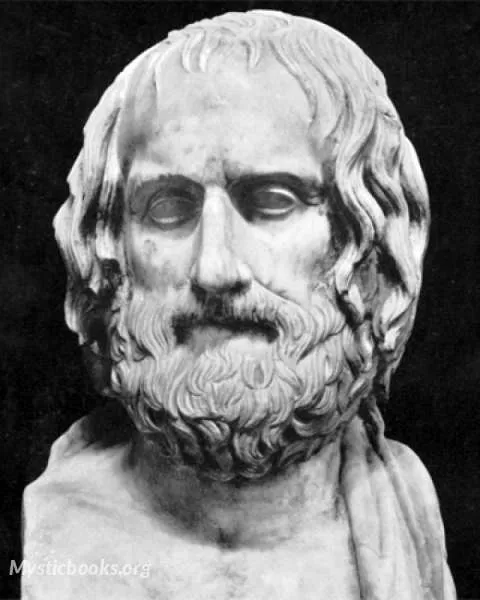
Timeline
Title
Country/Nationality
Euripides
Euripides was a tragedian of classical Athens. Along with Aeschylus and Sophocles, he is one of the three ancient Greek tragedians for whom any plays have survived in full. Some ancient scholars attributed ninety-five plays to him, but the Suda says it was ninety-two at most. Of these, eighteen or nineteen have survived more or less complete (Rhesus is suspect). There are many fragments (some substantial) of most of his other plays. More of his plays have survived intact than those of Aeschylus and Sophocles together, partly because his popularity grew as theirs declined—he became, in the Hellenistic Age, a cornerstone of ancient literary education, along with Homer, Demosthenes, and Menander.
Euripides is identified with theatrical innovations that have profoundly influenced drama down to modern times, especially in the representation of traditional, mythical heroes as ordinary people in extraordinary circumstances. This new approach led him to pioneer developments that later writers adapted to comedy, some of which are characteristic of romance. He also became "the most tragic of poets", focusing on the inner lives and motives of his characters in a way previously unknown. He was "the creator of...that cage which is the theatre of Shakespeare's Othello, Racine's Phèdre, of Ibsen and Strindberg," in which "imprisoned men and women destroy each other by the intensity of their loves and hates". But he was also the literary ancestor of comic dramatists as diverse as Menander and George Bernard Shaw.
His contemporaries associated him with Socrates as a leader of a decadent intellectualism. Both were frequently lampooned by comic poets such as Aristophanes. Socrates was eventually put on trial and executed as a corrupting influence. Euripides chose a voluntary exile in old age, dying in Macedonia. But recent scholarship casts doubt on ancient biographies of Euripides. For example, it is possible that he never visited Macedonia at all, or, if he did, he might have been drawn there by King Archelaus with incentives that were also offered to other artists.
Books by Euripides
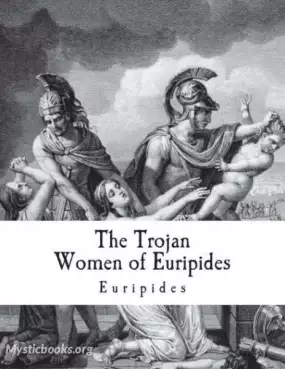
The Trojan Women
The Trojan Women also translated as The Women of Troy, and also known by its transliterated Greek title Troades, is a tragedy by the Greek playwright Euripides. Produced in 415 BC during the Peloponnesian War, it is often considered a commentary on t...
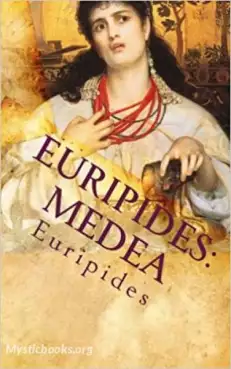
Medea
Medea is an ancient Greek tragedy written by Euripides, based upon the myth of Jason and Medea and first produced in 431 BC. The plot centers on the actions of Medea, a former princess of the " kingdom of Colchis, and the wife of Jason; she finds her...

Alcestis
Alcestis or Alceste, was a princess in Greek mythology, known for her love of her husband. Her life story was told by pseudo-Apollodorus in his Bibliotheca, and a version of her death and return from the dead was also popularized in Euripides's trage...
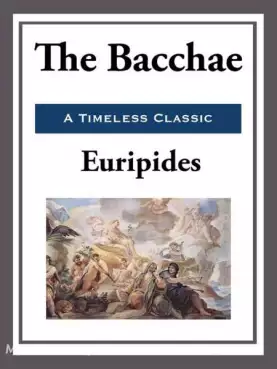
The Bacchae
The Bacchae is an ancient Greek tragedy, written by the Athenian playwright Euripides during his final years in Macedonia, at the court of Archelaus I of Macedon. It premiered posthumously at the Theatre of Dionysus in 405 BC as part of a tetralogy t...
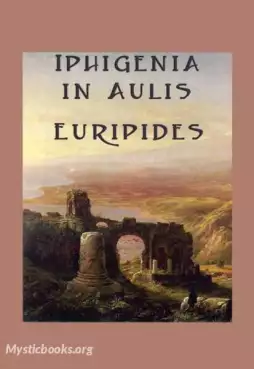
Iphigenia in Aulis
Iphigenia in Aulis or Iphigenia at Aulis is the last of the extant works by the playwright Euripides. Written between 408, after Orestes, and 406 BC, the year of Euripides' death, the play was first produced the following year in a trilogy with The B...

Hippolytus
Hippolytus is an Ancient Greek tragedy by Euripides, based on the myth of Hippolytus, son of Theseus. The play was first produced for the City Dionysia of Athens in 428 BC and won first prize as part of a trilogy.

Trojan Women (Murray Translation)
Euripides' play follows the fates of the women of Troy after their city has been sacked, their husbands killed, and as their remaining families are about to be taken away as slaves. However, it begins first with the gods Athena and Poseidon discussin...

Iphigenie in Aulis
Iphigenie in Aulis übersetzt aus dem Euripides von Friedrich von Schiller. Die Gesinnungen in diesem Stücke sind groß und edel, die Handlung wichtig und erhaben, die Mittel dazu glücklich gewählt und geordnet. (aus den Anmerkungen von Schiller)

Orestes
In accordance with the advice of the god Apollo, Orestes has killed his mother Clytemnestra to avenge the death of his father Agamemnon at her hands. Despite Apollo’s earlier prophecy, Orestes finds himself tormented by Erinyes or Furies to the blood...

Iphigenia in Aulis (Way translation)
Iphigenia in Aulis (Ancient Greek: Ἰφιγένεια ἐν Αὐλίδι) is the last extant work of the playwright Euripides. Written between 408, after the Oresteia, and 406 BC, the year of Euripides' death, the play was first produced the following year in a trilog...

Iphigenia in Tauris (Murray Translation)
The apparent sacrifice of Iphigenia at Aulis by her own father Agamemnon was forestalled by the godness Artemis, who by an adroit sleight of hand that fooled all participants, substituted a deer for the daughter. Wafted magically away to the “Friendl...

Electra (Murray Translation)
Electra (the Unmated One) is eaten up with hatred of her mother Clytemnestra and stepfather Aegisthus for their murder of her father Agamemnon. Married platonically to a good-hearted but poverty-stricken old peasant, she longs for the return of her b...

Trojan Women (Coleridge Translation)
Described by modern playwright Ellen McLaughlin as "perhaps the greatest antiwar play ever written," "The Trojan Women," also known as "Troades," is a tragedy by the Greek playwright Euripides. Produced in 415 BC during the Peloponnesian War, it is o...

Alcestis (Way Translation)
Alcestis, queen of Pherae, is one of the noblest heroines in all of Greek drama. Her husband Admetus is the supposedly virtuous king of Pherae who wins the friendship of the god Apollo. Apollo tricks the Eumenides into an agreement that when the time...

Medea (Way Translation)
Medea is an ancient Greek tragedy written by Euripides, based upon the myth of Jason and Medea and first produced in 431 BCE. The plot centers on the actions of Medea, a barbarian and the wife of Jason; she finds her position in the Greek world threa...

Bacchanals
Euripides' Bacchae is based on the Greek myth of King Pentheus of Thebes and his mother Agave and their punishment by the god Dionysus who proclaims that he has come to Thebes to avenge the slander that he is not the son of Zeus. He intends to introd...

Andromache
Andromache is a Classical Greek verse tragedy written by Euripides in the 5th century BCE. When Troy was taken by the Greeks, Andromache, wife of that Hector whom Achilles slew ere himself was slain by the arrow which Apollo guided, was given in t...